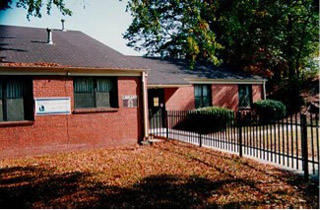Lawyer and civil rights activists Floyd McKissick proclaimed, “Tenants cannot be evicted without due process,” when he heard that community organizer Joyce Thorpe had been thrown out of her public housing unit for working to empower low-income black women. As a citizen, she is entitled to fair treatment in the judicial system, and public…
Civil Rights
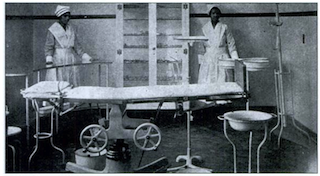
Lincoln was the only hospital within a 25-mile radius of Durham that would treat African Americans until the early 1960s when Watts Hospital integrated its wards. Before this integration, Blacks often turned to midwives and home remedies for their healthcare. Dr. Stanford Warren, John Merrick, and Dr. Aaron…
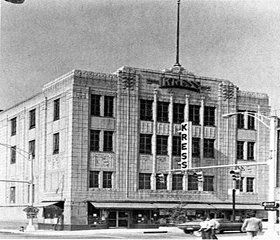
Lunch counter sit ins by young people in Durham were inspired by the moving speech given by Dr. Martin Luther King Jr. at Durham's White Rock Baptist Church in 1961.
In 1963, a dark and lonely jail cell in Birmingham, Alabama served as the setting of the conception of one of the most important civil rights documents of the past 100…
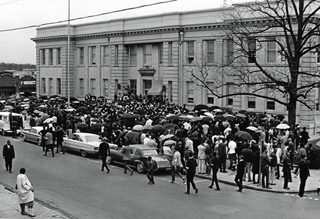
Certain events are so monumental that they define the soul of a generation. Where were you when the planes hit on 9/11? What were you doing when MLK was cut down by a sniper’s bullet? Such defining moments unite us all through our most basic commonality—being human. Black and white alike, Americans across the nation reacted with sorrow and…
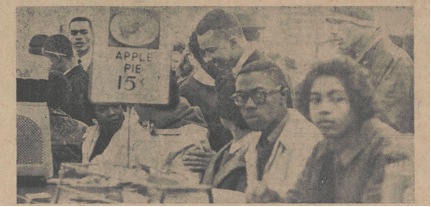
How powerful is silence? Can you really promote a cause by not saying anything at all directed toward authorities? North Carolina College students did just that. They vowed to fight against segregated serving policies through silent and peaceful protest. They would stand up, or, rather, sit down, for their rights. Following the February 1st sit…
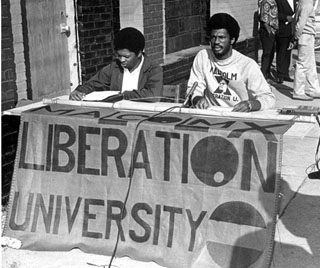
In 1969 local activist Howard Fuller along with a group of Duke students founded Malcolm X Liberation University in an old hosiery mill in downtown Durham. Fuller and the students were unhappy with Duke's progress toward equal resources for black students and the formation of a black studies department, common concerns at the time in…
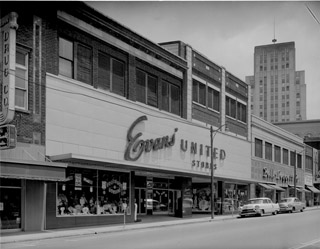
“Did the roof fall in today?” Mayor Mutt Evans asked the manager at Woolworth’s five and dime in the downtown Durham in July 1960. The business had just served a Coke to its first black customer. It was the start of a new era for the Bull City and as Durham’s first Jewish mayor, Mutt Evans was uniquely equipped to navigate the period’s racial…
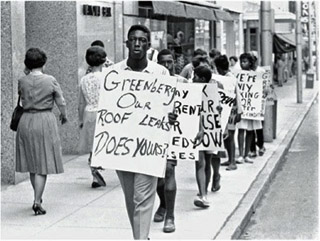
“Your Neighbor is a Slumlord.”
“High Rent for Firetraps.”
“My Children Sleep with Rats.”
Protesters with painted signs bearing these word marched outside both Abe Greenberg’s office and home during the summer of 1966 in response to his unwarranted hikes in rent and disregard for the needs of his tenants by not meeting Durham…
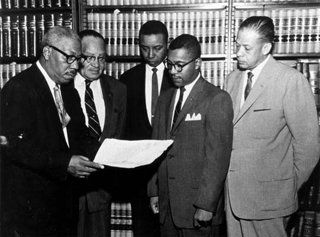
Thomas Hocutt, a Black student from Durham, wanted to become a pharmacist. But in 1933, the University of North Carolina in Chapel Hill denied his application to their Pharmacy school on the basis of race. Attorneys Conrad Pearson and Cecil McCoy took up his case and with the support of the NAACP, filed a…
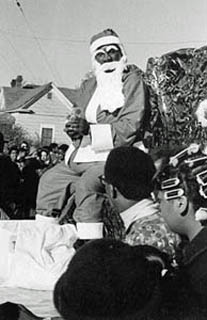
It was a little chilly, but a beautiful day, the morning of November 29th, 1968. Everyone was lined up on Fayetteville Street as the yearly Christmas…
